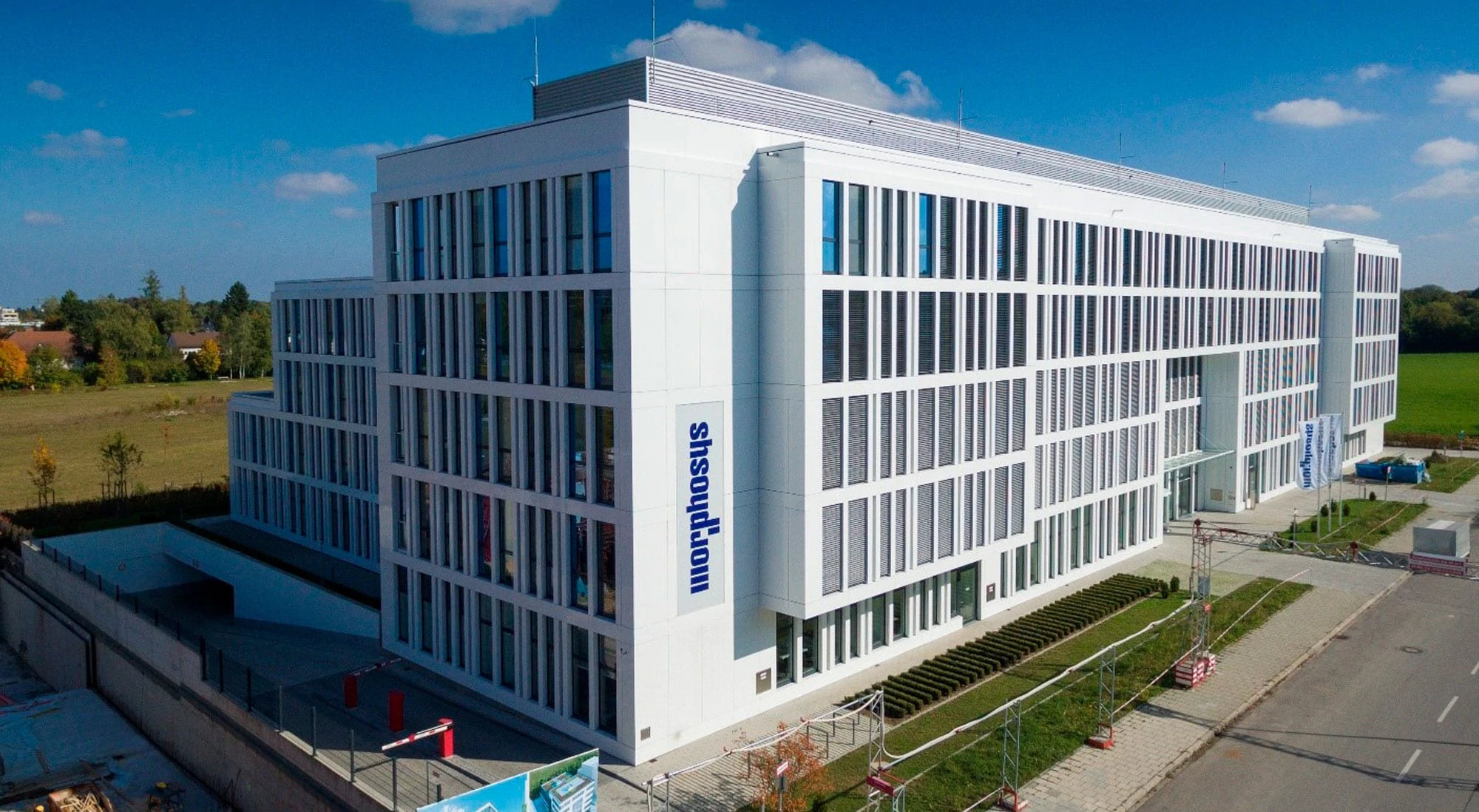Morphosys and Incyte enter phase 3 inMIND study with anti-cancer agent tabasitamab
The two companies are researching new treatments for patients with relapsed or refractory lymph node cancer
April 2021

© Morphosys AG
Purification of antibodies

© Morphosys AG
Morphosys AG, Martinsried
“Despite improvements in treatment for patients with relapsed or refractory FL and MZL, there continues to be a significant medical need for additional therapies with improved outcomes.”
Dr. Peter Langmuir
Group Vice President, Oncology Targeted Therapeutics, Incyte.
MorphoSys AG and Incyte Inc. today announced the first patient has been dosed in the placebo-controlled Phase 3 inMIND study evaluating the efficacy and safety of tafasitamab or placebo in combination with lenalidomide and rituximab in patients with relapsed or refractory follicular lymphoma (FL) or marginal zone lymphoma (MZL).
“Despite improvements in treatment for patients with relapsed or refractory FL and MZL, there continues to be a significant medical need for additional therapies with improved outcomes,” said Peter Langmuir, M.D., Group Vice President, Oncology Targeted Therapeutics, Incyte. “We are pleased to have initiated the inMIND study as we seek meaningful, new options for patients with relapsed or refractory FL or MZL.”
FL and MZL are the most common indolent, or slow growing, forms of B-Cell non-Hodgkin lymphomas (NHLs). FL and MZL account for approximately 20-25% and 7% of adult NHL cases, respectively. There are limited treatment options for the more than 17,000 new cases of relapsed or refractory FL treated every year in the United States, Europe and Japan.
“We are looking forward to building on previous, exploratory data in FL, and the results seen with tafasitamab and lenalidomide in relapsed or refractory diffuse large B-cell lymphoma, to evaluate the potential benefit of adding tafasitamab to the current lenalidomide and rituximab combination regimen in patients with indolent lymphomas,” said Mike Akimov, M.D., Ph.D., Head of Global Drug Development, MorphoSys. On January 7, 2021, the U.S. Food and Drug Administration granted orphan drug designation for tafasitamab for the treatment of FL.
inMIND (NCT04680052), a global, double-blind, placebo-controlled, randomized Phase 3 study, is evaluating whether tafasitamab and lenalidomide as an add-on to rituximab provides improved clinical benefit compared with lenalidomide alone as an add-on to rituximab in patients with relapsed or refractory follicular lymphoma (FL) Grade 1 to 3a or relapsed or refractory nodal, splenic or extranodal marginal zone lymphoma (MZL). The study is expected to enroll over 600 adult (age >=18 years) patients with relapsed or refractory FL or MZL. The primary endpoint of the study is progression-free survival (PFS) in the FL population, and the key secondary endpoints are PFS and overall survival (OS) in the overall population as well as positron emission tomography complete response (PET-CR) at the end of treatment (EOT) in the FL population.
Tafasitamab is a humanized Fc-modified cytolytic CD19 targeting monoclonal antibody. In 2010, MorphoSys licensed exclusive worldwide rights to develop and commercialize tafasitamab from Xencor, Inc. Tafasitamab incorporates an XmAb® engineered Fc domain, which mediates B-cell lysis through apoptosis and immune effector mechanism including antibody-dependent cell-mediated cytotoxicity (ADCC) and antibody-dependent cellular phagocytosis (ADCP).
Monjuvi® (tafasitamab-cxix) is approved by the U.S. Food and Drug Administration in combination with lenalidomide for the treatment of adult patients with relapsed or refractory diffuse large B-cell lymphoma (DLBCL) not otherwise specified, including DLBCL arising from low grade lymphoma, and who are not eligible for autologous stem cell transplant (ASCT). This indication is approved under accelerated approval based on overall response rate. Continued approval for this indication may be contingent upon verification and description of clinical benefit in a confirmatory trial(s).
In January 2020, MorphoSys and Incyte entered into a collaboration and licensing agreement to further develop and commercialize tafasitamab globally. Monjuvi(R) is being co-commercialized by Incyte and MorphoSys in the United States. Incyte has exclusive commercialization rights outside the United States.
A marketing authorization application (MAA) seeking the approval of tafasitamab in combination with lenalidomide in the EU has been validated by the European Medicines Agency (EMA) and is currently under review for the treatment of adult patients with relapsed or refractory DLBCL, including DLBCL arising from low grade lymphoma, who are not candidates for ASCT. Tafasitamab is being clinically investigated as a therapeutic option in B-cell malignancies in a number of ongoing combination trials.



